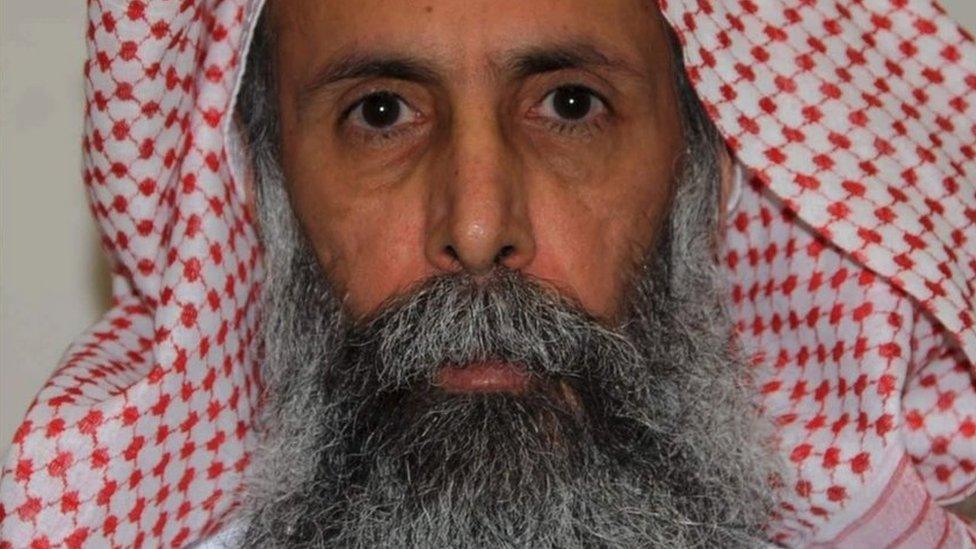Iran: Saudis face 'divine revenge' for executing al-Nimr
- Published
A number of Saudi Arabia's allies have taken diplomatic action against Iran, amid a row over the Saudi execution of a prominent Shia Muslim cleric
Saudi Arabia will face "divine revenge" for its execution of a prominent Shia cleric, Iran's supreme leader Ayatollah Ali Khamenei has warned.
Ayatollah Khamenei described Sheikh Nimr al-Nimr as a "martyr" who acted peacefully.
Protesters stormed the Saudi embassy in Tehran late on Saturday, setting fire to the building before being driven back by police.
Several hundred people gathered outside the building again on Sunday afternoon.
The authorities have changed the name of the street on which the Saudi embassy stands, naming it after the executed Sheikh Nimr, one of 47 people executed for terrorism offences on Saturday.
But Ayatollah Khamenei said the cleric had been executed for his opposition to Saudi Arabia's Sunni rulers.
"This oppressed scholar had neither invited people to armed movement, nor was involved in covert plots," the ayatollah tweeted, external.
"The only act of #SheikhNimr was outspoken criticism," he added, saying the "unfairly-spilled blood of oppressed martyr #SheikhNimr will affect rapidly & Divine revenge will seize Saudi politicians".
Sheikh Nimr had been a figurehead in the anti-government protests that erupted in the wake of the Arab Spring up to his arrest in 2012.

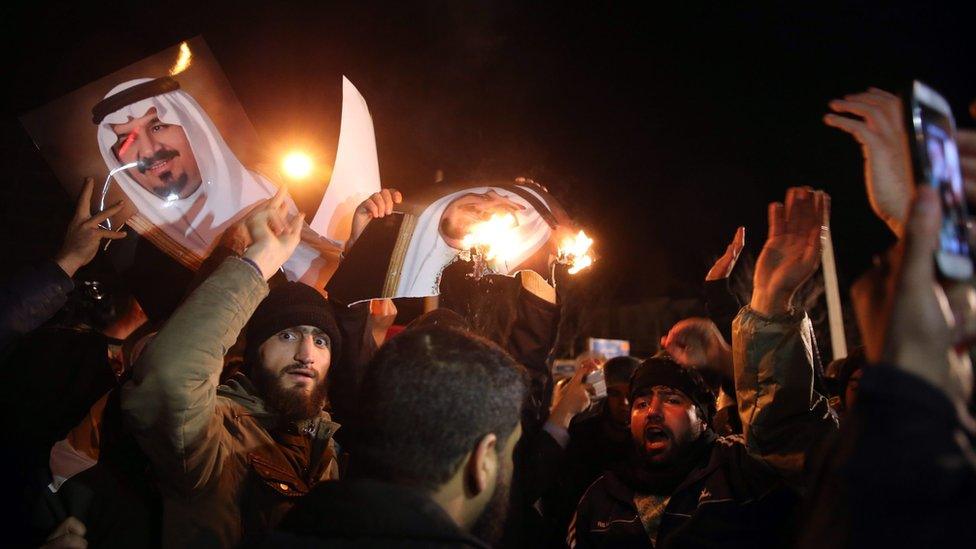
Protesters stormed the Saudi embassy in Tehran, burning images of the Saudi king
Fury in Iranian press, by BBC Monitoring
Newspapers in Iran have reacted with anger to the killing of the Shia cleric, warning it could bring down the Saudi ruling family but Saudi papers insist the authorities have the right to mete out punishment to those who do not obey the rules.
The killing "has brought the weak foundations of the bloodthirsty government of Saudi Arabia closer to collapse", says Iran's hard-line Vatan-e Emruz.
The authorities in Riyadh must now accept that the supporters of the cleric in the region "will take revenge", warns conservative Hemayat.
But reformist Sharq fears the "irresponsible" act could exacerbate sectarian tensions in the region and warns Tehran not to get drawn into Riyadh's "dangerous game".
In Saudi Arabia, Al-Riyadh is adamant that "the homeland's security, unity and prestige are non-negotiable" and no "incitement of harm or sedition" should be tolerated irrespective of the culprit's affiliations.
Finally, Al-Jazirah, says the "firm, strong verdict" has made the country "safer and more stable".

Iran - Saudi Arabia's main regional rival - has led condemnation among Shia communities over the execution.
The foreign ministry in Tehran said the Sunni kingdom would pay a high price for its action, and it summoned the Saudi charge d'affaires in Tehran in protest.
Some of the protesters at the Saudi embassy in Tehran hurled petrol bombs and rocks. Forty people have been arrested, officials said.
There have also been demonstrations in Saudi Arabia's Eastern Province, where Shia Muslims complain of marginalisation, as well as in Iraq, Bahrain and several other countries.
The top Shia cleric in Iraq, Ayatollah Ali al-Sistani described the execution as an "unjust aggression".
The leader of Lebanon's Shia Hezbollah movement, Hassan Nasrallah, launched his sharpest attack yet on the Saudi ruling family, accusing them of seeking to ignite a civil war between Sunni and Shia Muslims across the world.
He said the blood of Sheikh Nimr would "plague the Al Saud [family] until the Day of Resurrection", prompting cries of "Death to the Al Saud!" among an audience watching his address.
For its part, Saudi Arabia complained to the Iranian envoy in Riyadh about what it called "blatant interference" in its internal affairs.
Clashes between protesters and police were also reported for a second day in Indian-administered Kashmir and in Bahrain, where a Shia majority have complained of marginalisation at the hands of the Sunni royal family.
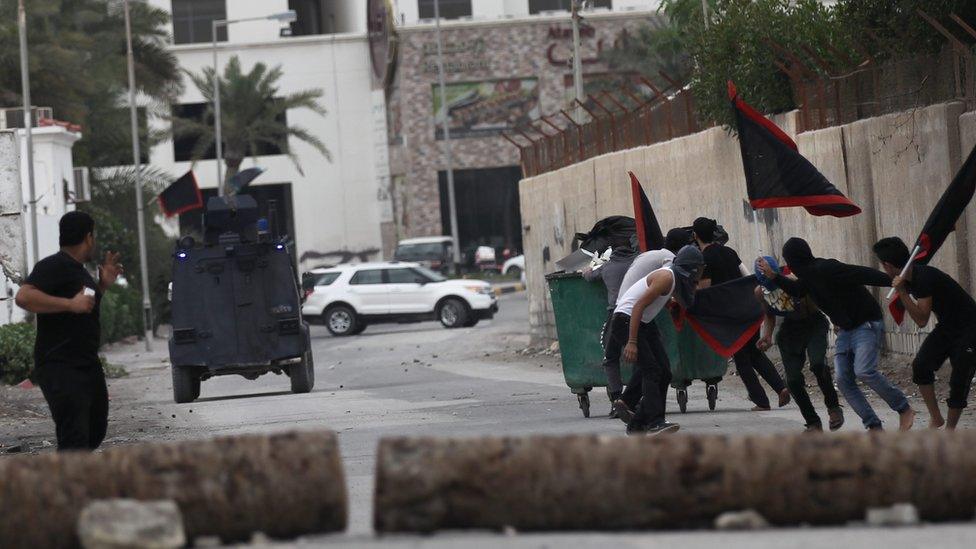
There were also demonstrations in Bahrain and other countries
Police responded with tear gas as protesters took to the streets in Indian-administered Kashmir
The execution has worsened long-running tensions between the two Middle Eastern nations, which support opposite sides in the Syrian and Yemen conflicts.
The US and UN have both called for restraint.
In a statement after the executions, US state spokesman John Kirby appealed to Saudi Arabia's government to respect and protect human rights, and to ensure fair and transparent judicial proceedings.
Mr Kirby also urged the Saudi government to permit peaceful expression of dissent and, along with other leaders in the region, to redouble efforts to reduce regional tensions.

Who was Sheikh Nimr al-Nimr?
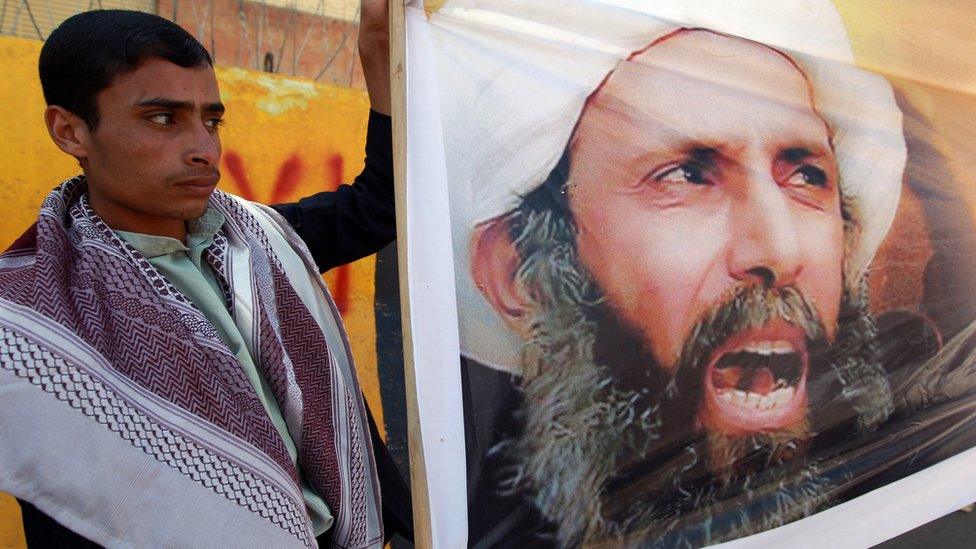
News of Sheikh Nimr's execution prompted an angry response from Shias across the region
In his 50s when he was executed, he has been a persistent critic of Saudi Arabia's Sunni royal family
Arrested several times over the past decade, alleging he was beaten by Saudi secret police during one detention
Met US officials in 2008, Wikileaks revealed, external, seeking to distance himself from anti-American and pro-Iranian statements
Said to have a particularly strong following among Saudi Shia youth

Most of the 47 executed by Saudi Arabia were Sunnis convicted of involvement in al-Qaeda-linked terror attacks last decade.
Saudi Arabia carried out more than 150 executions last year, the highest figure recorded by human rights groups for 20 years.
- Published15 October 2014
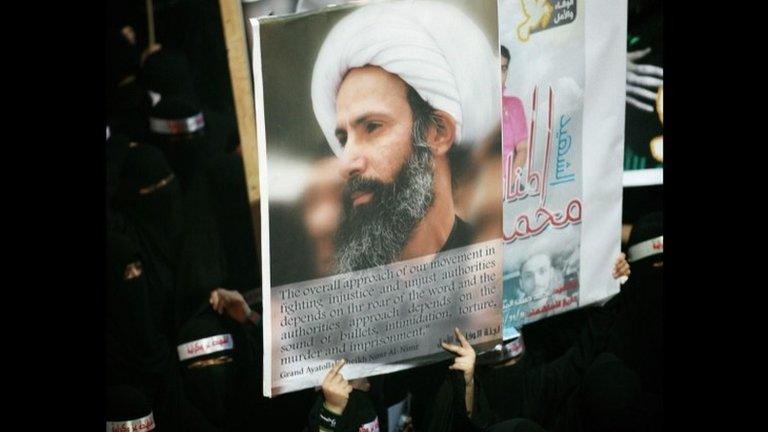
- Published4 January 2016
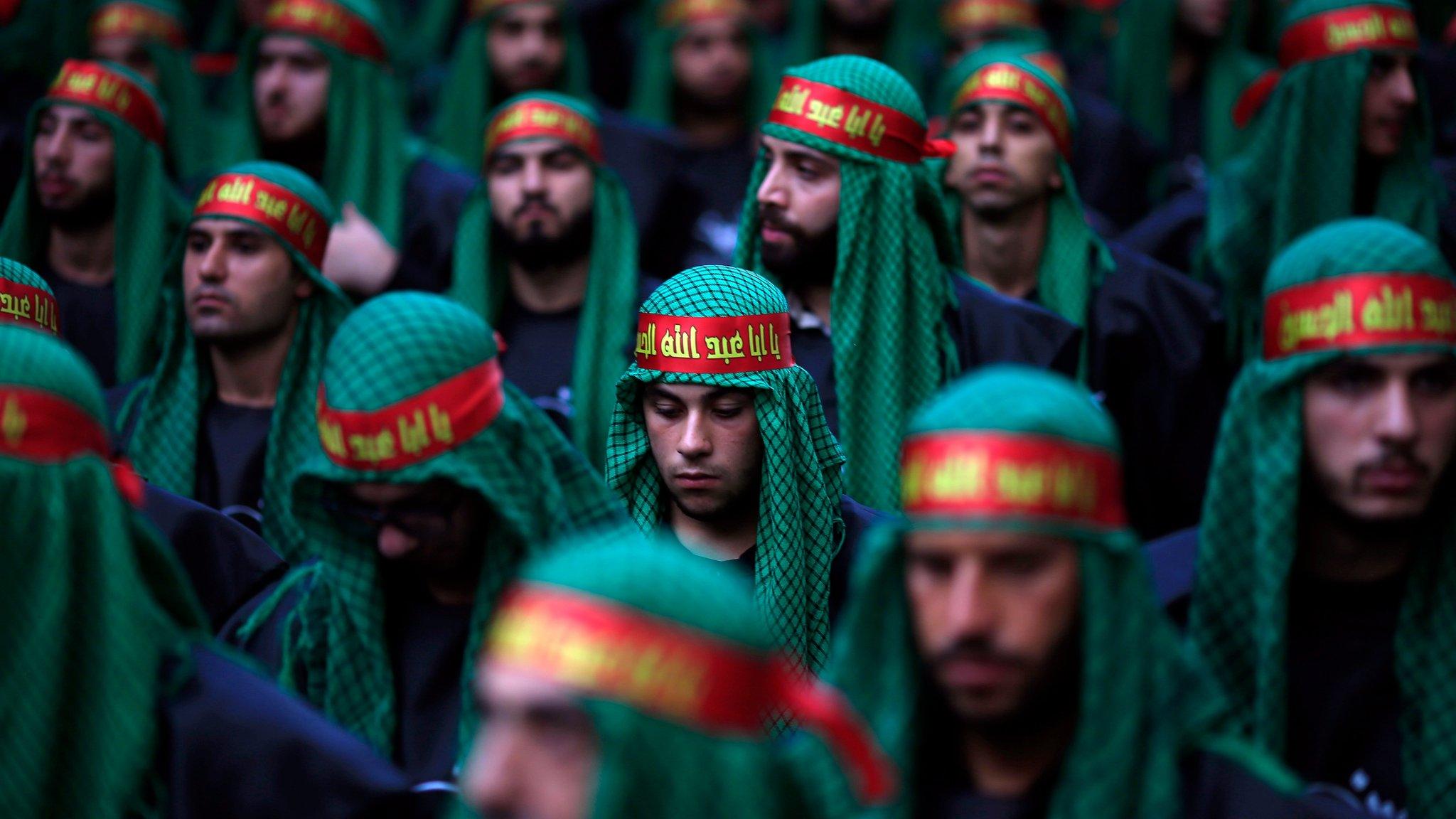
- Published2 January 2016
